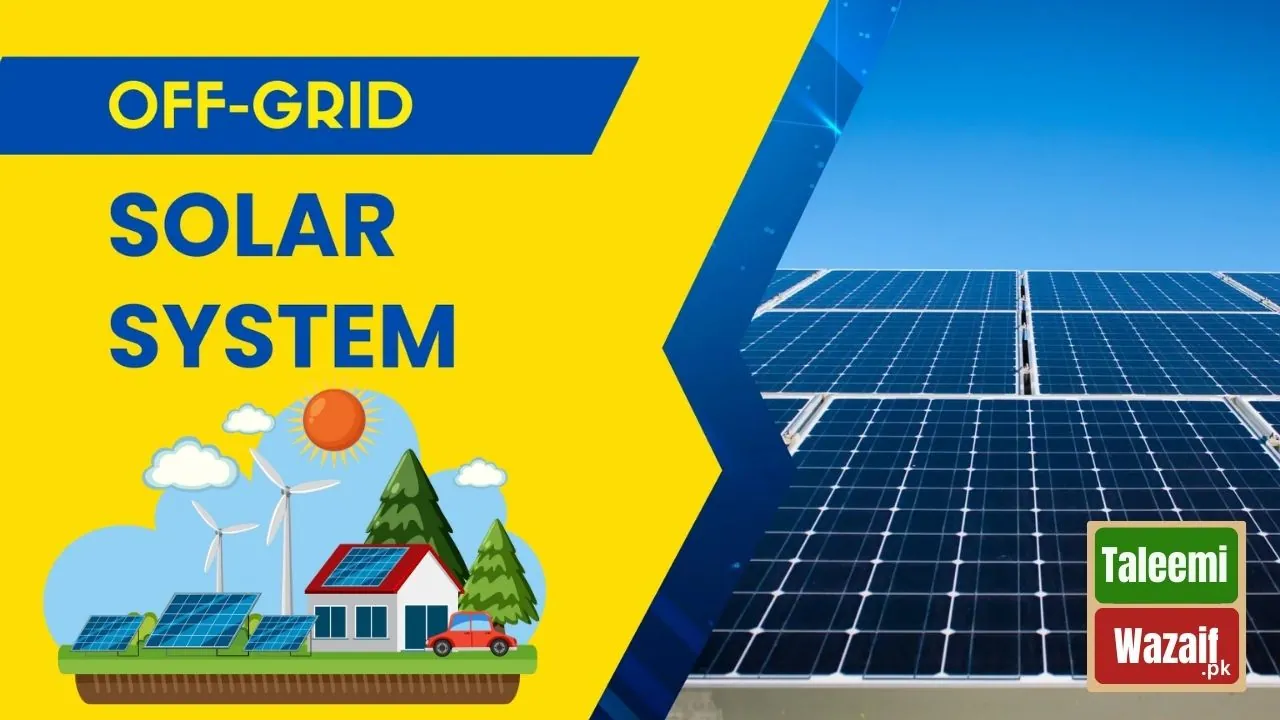Off-grid solar systems are essential for people living in remote areas of Pakistan where electricity from the national grid is unavailable or unreliable. These systems are independent and do not require a connection to the utility grid, making them ideal for areas like hilly regions, rural areas, and places where extending the grid is costly. Off-grid solar systems operate independently from the national grid and store energy in batteries for use when needed.
Contents
How Off-Grid Solar Systems Work
An off-grid solar system captures sunlight through solar panels and converts it into electricity. This electricity is used to power devices and is also stored in batteries for later use. The system includes an inverter that changes the direct current (DC) produced by the solar panels into alternating current (AC), which is used by most household appliances.
Major Components of an Off-Grid Solar System
- Solar Panels: Solar panels are the primary component, capturing sunlight and converting it into electricity.
- Inverter: The inverter changes the DC electricity generated by the solar panels into AC electricity used by household appliances.
- Charge Controller: This device regulates the flow of electricity from the solar panels to the batteries, preventing overcharging and ensuring efficient operation.
- Batteries: Batteries store the excess electricity generated during the day for use at night or during cloudy weather.
Advantages of an Off-Grid Solar System
Off-grid solar systems have many benefits. They offer energy independence as they do not rely on the national grid, making them perfect for remote areas. Once installed, they provide free electricity, which reduces or eliminates electricity bills, leading to significant cost savings. These systems use clean, renewable energy, which helps in reducing carbon emissions, thus benefiting the environment. Additionally, they are very reliable, especially in areas with frequent power outages, ensuring a consistent power supply.

Disadvantages of an Off-Grid Solar System
Despite their benefits, off-grid solar systems also have some downsides:
- High Initial Cost: The initial setup can be expensive due to the cost of solar panels and batteries.
- Maintenance: The system requires regular maintenance to ensure optimal performance.
- Energy Storage Limits: The amount of energy stored in batteries can be limited, which may not be sufficient for high-energy needs.
- Space Requirement: Batteries and other components need space for installation, which may not be available in all homes.
Suitable Locations for Off-Grid Solar Systems
Off-grid solar systems are ideal for various locations. They are perfect for remote areas where extending the grid is too expensive or impractical. These systems work well in hilly regions with challenging terrain where grid extension is difficult. They are also suitable for rural areas, such as villages, where reliable electricity access is limited. Additionally, off-grid systems are useful for temporary installations like construction sites or mobile homes, where temporary power is needed.
Also Read: Easily Check Eligibility for Solar Panels with Helpline 8800 New Update 2024
Conclusion
Off-grid solar systems provide a practical and sustainable solution for electricity in areas where the national grid is not available or reliable. They offer energy independence, cost savings, and environmental benefits, making them a valuable investment for those living in remote areas of Pakistan. Although they require a high initial investment and regular maintenance, their long-term benefits make them worthwhile.
